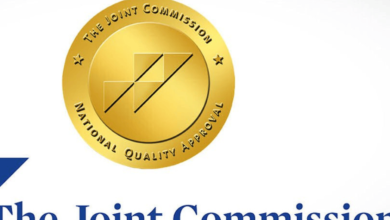5 Tips to Improve Brain Health on World Brain Day

As healthcare professionals, you already know the value of brain health. Maintaining good brain health can impact our cognitive function, motor function, and of course, our mental health. It is a critical component of our overall health, so being proactive about keeping ourselves healthy and our brains healthy is a good idea.
The World Federation of Neurology launched World Brain Day (which is on July 22 this year!) to promote the importance of good brain health. And since all nurses have physically and mentally demanding jobs, there’s no time like the present to make sure you’re taking care of your brain health.
So, in honor of World Brain Day, let’s look at five tips to improve brain health for nurses.
1. Get Your Sleep
Sleep is one of the most important aspects of improving brain health. There’s plenty of research that suggests that sleep removes toxins from our brains; it also gives you a chance to recharge, store memories, and rebuild your focus. Getting proper sleep may also help prevent multiple health conditions, potentially including Alzheimer’s.
According to the American Sleep Foundation, adults should get seven to nine hours of good-quality sleep every night, so make that a priority. We know that may be easier said than done for nurses who may be working 12-hour shifts several days back-to-back, but these tips may help:
- Do as much prep work as possible before the sprint of shifts, including meal prepping, laundry, and household cleaning, so you have more rest hours during your work week.
- Take an hour to rest when you get off from work, whether that’s doing yoga (or even light stretching), making your favorite meal, or watching an hour of your favorite show; feeling relaxed will make it easier to get solid sleep.
- Don’t pick up your phone once you’re in bed; it’s too easy to mindlessly scroll, and the blue light can prevent you from getting good sleep.
2. Exercise Regularly
Physical exercise is just as important for brain health as it is for heart health (though the two are intertwined).
Exercise can actually improve your cognition, planning, memory, and focus. It can also reduce stress, reduce inflammation, and improve flood flow to the brain, all of which are good for brain health.
Good news: In many cases, the work you do during your shifts will already count as exercise, ranging from light to strenuous, depending on your nursing specialty and your day-to-day job responsibilities. Adding extra exercise on your days off will be the cherry on top.
Consider finding an exercise program that you enjoy to take advantage of the mental health perks, too. Whether it’s weight lifting, running, or joining a sports league, the options are endless!
3. Stay Mentally Active
Most people know that staying physically active is key to brain health, but did you know that mental engagement matters, too?
The saying “if you don’t use it, you’ll lose it” is actually true—and if you’re sitting in front of a television instead of solving problems, learning, and engaging, you could run into declining cognition.
Working as a nurse will certainly keep you mentally active, but it’s also good to learn new skills to keep your brain engaged. Here are a few good options:
- Engaging with brain game mobile apps in your free time
- Picking up a new hobby that requires skills development, which could be anything from cooking to building computers
- Learning a new language
- Taking a course from your community learning center
- Receiving additional certification and training for your work as a nurse
4. Eat a Balanced Diet
Eating well is a pillar of all health, and it’s no surprise that it’s good for brain health, too.
Nutritious foods can actually increase the production of new neurons, and it also positively impacts the synaptic plasticity of the brain. And as a bonus, nutritious foods will help you feel good both physically and mentally, as well as giving you a boost in energy.
If you’re looking for brain-healthy foods for snacks, try these:
- Leafy greens, like kale and spinach, in salads or on sandwiches
- Nuts
- Berries, which are full of antioxidants
- Fatty fish
5. Maintain an Active Social Life
While most people think of an active social life as something positive, they don’t realize that it’s actually vital to our health—and not just our mental health.
Social isolation, which commonly happens in older age, can directly impact memory and thinking skills. Social health is actually associated with structural brain changes, which directly influence cognitive function.
Nursing, fortunately, is a social job; you’re likely to be constantly interacting with patients and co-workers. Make sure you’re investing in social relationships outside of work, too. Find your community, whether through a club, a great group of close friends, or a religious organization; there are plenty of opportunities to find “your people” wherever you are.
Want to learn more about tips for staying happy, healthy, and thriving as a nurse? Check out our blog here!







